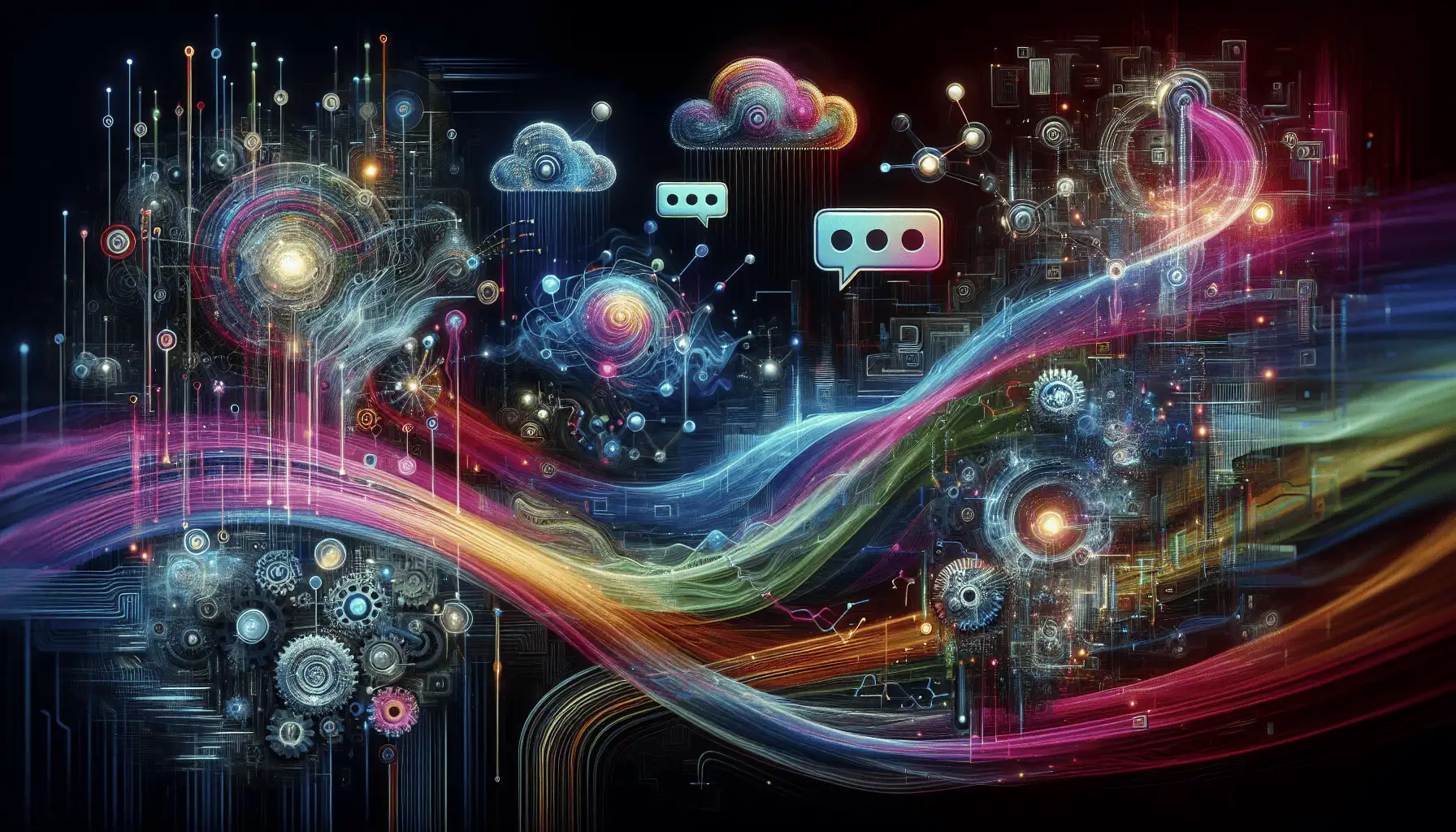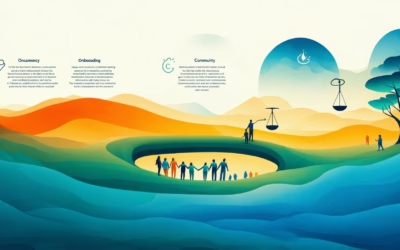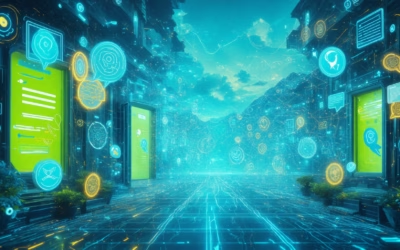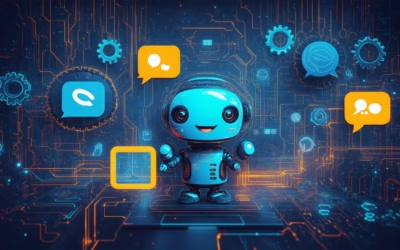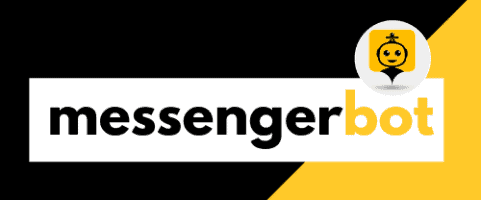Dans le paysage en évolution rapide de l'intelligence artificielle, l'IA chatbot open source est apparue comme une alternative puissante aux solutions propriétaires comme ChatGPT. Cet article sert de guide complet pour comprendre le monde des chatbots IA open source, en explorant leurs capacités, avantages et les différentes options gratuites disponibles. Nous aborderons des questions critiques telles que, Y a-t-il des chatbots IA open source ? et Existe-t-il un chatbot IA totalement gratuit ?, tout en comparant ces alternatives à ChatGPT. De plus, nous évaluerons quel IA pourrait surpasser ChatGPT et mettrons en avant les meilleures solutions IA open source actuellement sur le marché. À la fin de ce guide, vous serez équipé d'informations précieuses et de ressources, y compris des liens vers des communautés de chatbot IA open source et des plateformes, garantissant que vous disposez de toutes les informations nécessaires pour naviguer efficacement dans ce domaine passionnant.
Y a-t-il des chatbots IA open source ?
Aperçu des chatbots IA open source
Oui, il existe plusieurs chatbots IA open source disponibles qui répondent à divers besoins et fonctionnalités. Voici quelques-unes des plateformes les plus notables en 2025 :
1. **Botpress** : Une plateforme avancée d'IA conversationnelle open source qui permet aux développeurs de créer des chatbots facilement. Elle prend en charge plusieurs bibliothèques de compréhension du langage naturel (NLU) et est conçue pour construire des chatbots en utilisant des flux visuels. Botpress nécessite peu de données d'entraînement, se concentrant sur les intentions, les entités et les emplacements, ce qui la rend accessible tant aux débutants qu'aux développeurs expérimentés. [Source : Documentation de Botpress]
2. **Rasa** : Un puissant cadre open source pour construire des assistants IA contextuels. Rasa fournit des outils pour la compréhension du langage naturel et la gestion des dialogues, permettant aux développeurs de créer des chatbots hautement personnalisables. Il met l'accent sur l'apprentissage automatique et peut être intégré à diverses plateformes de messagerie. [Source : Documentation de Rasa]
3. **ChatterBot** : Une bibliothèque Python qui permet aux développeurs de créer des chatbots capables d'apprendre des conversations. ChatterBot utilise des algorithmes d'apprentissage automatique pour générer des réponses basées sur les données d'entrée, ce qui en fait une option flexible pour diverses applications. [Source : GitHub de ChatterBot]
4. **Microsoft Bot Framework** : Bien qu'il ne soit pas entièrement open source, il offre un ensemble complet d'outils pour construire des chatbots. Le SDK du Bot Framework est open source et permet la création de bots intelligents capables d'interagir sur plusieurs canaux. [Source : Microsoft Bot Framework]
5. **Dialogflow (SDK Open Source)** : Bien que Dialogflow lui-même soit un service propriétaire, il dispose d'un SDK open source qui permet aux développeurs de créer des chatbots pouvant s'intégrer à l'API de Dialogflow. Cela offre de la flexibilité tout en tirant parti des puissantes capacités NLU de Google. [Source : Documentation de Dialogflow]
6. **Open Assistant** : Un projet communautaire visant à créer un assistant IA entièrement open source. Il se concentre sur la confidentialité et le contrôle de l'utilisateur, permettant une personnalisation et une intégration étendues avec divers services. [Source : GitHub de Open Assistant]
Ces plateformes offrent une gamme de fonctionnalités et de capacités, les rendant adaptées à différents cas d'utilisation, des simples bots FAQ aux agents conversationnels complexes. Pour les développeurs cherchant à tirer parti des solutions open source, ces options offrent des fonctionnalités robustes et un soutien communautaire.
Avantages de l'utilisation des chatbots open source
Utiliser des chatbots open source présente de nombreux avantages pour les entreprises et les développeurs :
– **Rentabilité** : Les chatbots open source sont généralement gratuits à utiliser, ce qui réduit considérablement le coût global de déploiement par rapport aux solutions propriétaires. Cela permet aux entreprises d'allouer des ressources à d'autres domaines critiques.
– **Personnalisation** : Les chatbots IA open source peuvent être adaptés pour répondre à des besoins commerciaux spécifiques. Les développeurs ont la liberté de modifier le code, d'ajouter des fonctionnalités et de s'intégrer aux systèmes existants, garantissant que le chatbot s'aligne parfaitement sur les objectifs organisationnels.
– **Soutien communautaire** : De nombreux projets open source ont des communautés dynamiques qui contribuent au développement continu et à la résolution de problèmes. Cet environnement collaboratif favorise l'innovation et fournit aux utilisateurs un accès à des connaissances et des ressources partagées.
– **Transparency**: With open-source software, users can inspect the code for security vulnerabilities and ensure compliance with data protection regulations. This transparency builds trust and allows businesses to maintain control over their data.
– **Flexibility**: Open-source chatbots can be deployed across various platforms and integrated with multiple messaging services, offering businesses the flexibility to reach their audience wherever they are.
By leveraging open-source chatbot AI, businesses can enhance their customer engagement strategies while enjoying the benefits of customization, cost savings, and community-driven support.
Is There a Totally Free AI Chatbot?
Yes, there are several totally free AI chatbots available that offer various functionalities. Here are some notable options:
- Perplexity AI: This free AI chatbot is connected to the internet and provides sources for its responses, enhancing its reliability. Users can easily interact with it by typing their queries into the “ask anything” box on the website. Perplexity AI is designed to deliver informative answers while maintaining an enjoyable user interface.
- ChatGPT: OpenAI’s ChatGPT offers a free tier that allows users to engage in conversations on a wide range of topics. While it has premium options, the free version remains a powerful tool for casual inquiries and assistance.
- Google Bard: Another free AI chatbot, Google Bard leverages Google’s extensive data resources to provide accurate and contextually relevant answers. It is user-friendly and designed for seamless interaction.
- Réplique: This chatbot focuses on companionship and conversation. While it offers premium features, the basic version is free and allows users to chat and engage in meaningful dialogue.
- Cleverbot: An older yet still popular option, Cleverbot learns from user interactions and provides entertaining responses. It is entirely free to use and can engage in casual conversation.
These chatbots are excellent resources for users looking for free AI-driven conversational tools. Each has its unique features and strengths, making them suitable for different needs and preferences.
Explorer les options de chatbot IA gratuites
Lorsqu'on envisage chatbots IA gratuits, it’s essential to evaluate their functionalities and how they can meet your specific requirements. Many of these chatbots, such as Brain Pod IA, offer advanced features that can enhance user engagement and streamline communication processes. The versatility of these tools allows businesses and individuals to leverage AI technology without incurring costs, making them accessible to a broader audience.
Comparison of Free AI Chatbots Available
In comparing the available free AI chatbots, consider factors such as user interface, response accuracy, and additional features. For instance, while ChatGPT provides a robust conversational experience, Perplexity AI stands out with its ability to cite sources, adding a layer of credibility to its responses. Similarly, Google Bard excels in delivering contextually relevant answers, making it a strong contender in the realm of free AI chatbots. Each option has its strengths, and understanding these can help users choose the best fit for their needs.
Is There a Free AI Chatbot Like ChatGPT?
Yes, there are several free AI chatbots similar to ChatGPT that you can explore. These alternatives offer various features and functionalities, making them suitable for different user needs. Here are some of the best options available in 2025:
- Meta AI: This chatbot excels in social integration and visual AI capabilities. It allows users to edit photos, recognize objects in images, and generate creative captions seamlessly within the chat interface. Its advanced features make it a versatile tool for both casual users and professionals.
- Google Bard: A powerful conversational AI developed by Google, Bard is designed to provide informative and engaging responses. It leverages Google’s extensive data resources to deliver accurate information and is continuously updated to improve its conversational abilities.
- Microsoft Bing Chat: Integrated with the Bing search engine, this chatbot offers real-time information retrieval and conversational assistance. It is particularly useful for users looking for quick answers or assistance with web searches.
- Réplique: This AI chatbot focuses on emotional support and companionship. Users can engage in conversations that help improve mental well-being, making it a unique alternative for those seeking more than just information.
- Cleverbot: An established AI chatbot, Cleverbot learns from user interactions and provides entertaining and sometimes humorous responses. It’s a great option for casual conversations and entertainment.
- ChatSonic: This AI chatbot combines conversational abilities with voice recognition and image generation features. It is particularly useful for users who want a more interactive experience.
- Jasper Chat: Primarily known for content creation, Jasper also offers a chatbot feature that assists users in generating text-based content and ideas, making it ideal for writers and marketers.
- Kuki: Formerly known as Mitsuku, Kuki is a chatbot that has won multiple awards for its conversational skills. It engages users with fun and witty dialogues, making it a popular choice for entertainment.
- Tidio: This AI chatbot is designed for businesses, providing customer support and engagement solutions. It can be integrated into websites to assist visitors in real-time.
- Chatbot.com: A platform that allows users to create their own chatbots without coding. It offers templates and customization options, making it accessible for businesses and individuals alike.
These alternatives provide a range of functionalities, from social integration to emotional support, catering to different user needs. For more detailed comparisons and features, you can refer to resources like TechRadar et CNET, which regularly review and update lists of AI tools and chatbots.
Features of Free Chatbots Compared to ChatGPT
When comparing free AI chatbots to ChatGPT, several key features stand out:
- Conversational Abilities: While ChatGPT is known for its advanced conversational skills, many free alternatives like Google Bard and Meta AI also offer impressive dialogue capabilities, often enhanced by their integration with other services.
- Opciones de personalización: Platforms like Chatbot.com allow users to create personalized chatbots tailored to specific needs, which can be a significant advantage over standard models like ChatGPT.
- Support multilingue: Some free chatbots, such as the Assistant de chat IA multilingue from Brain Pod AI, provide support in multiple languages, making them accessible to a broader audience.
- Specialized Functions: Chatbots like Replika focus on emotional support, while others like Tidio are designed for business customer service, showcasing the diverse applications of free AI chatbots.
- Capacidades de Integración: Many free chatbots can be integrated into various platforms, enhancing their usability for businesses and individuals alike.
These features highlight the versatility of free AI chatbots and their potential to meet various user needs, making them worthy alternatives to ChatGPT.
Quelle AI est meilleure que ChatGPT ?
When evaluating AI chatbots, it’s essential to compare ChatGPT with other leading models to determine which might better suit your needs. While ChatGPT is renowned for its conversational abilities and versatility, several alternatives offer unique features that could be more advantageous depending on your specific use case. Here’s a closer look at some of the notable competitors in the AI chatbot landscape.
Evaluating AI Chatbots: ChatGPT vs. Others
Several AI chatbots have emerged as strong contenders against ChatGPT, each bringing distinct advantages to the table. Here are some of the most noteworthy:
- Claude: Developed by Anthropic, Claude is celebrated for its human-like writing capabilities, making it an excellent choice for creative applications and conversational interactions.
- ContentShake AI: This tool specializes in generating SEO-friendly content, optimizing articles for search engines, and suggesting keywords to enhance visibility.
- Copilot: Integrated with Microsoft products, Copilot aids users in generating text and automating tasks, providing efficiency for professionals across various applications.
- Gemini: Created by Google DeepMind, Gemini excels in data analysis and information retrieval, making it ideal for research and productivity tasks.
- Meta AI: Focused on social media, Meta AI allows users to experiment with content creation and audience engagement strategies, making it a valuable tool for marketers.
- Perplexity AI: Known for its research capabilities, Perplexity AI provides accurate information quickly, ideal for users needing reliable data.
- GitHub Copilot: Tailored for developers, GitHub Copilot assists in coding by suggesting snippets and offering real-time programming help.
- Messenger Bot: While not a direct alternative to ChatGPT, Messenger Bots enhance user interaction on social media, automating responses and engaging users effectively.
Each of these alternatives presents unique features that cater to different needs, from creative writing to coding assistance. Depending on your requirements, one of these AI chatbots may prove to be a better fit than ChatGPT.
User Experiences with Various AI Chatbots
User feedback plays a crucial role in determining the effectiveness of AI chatbots. Many users appreciate ChatGPT for its conversational fluency and adaptability. However, experiences with alternatives like Claude and ContentShake AI highlight their strengths in specific areas, such as creative writing and SEO optimization, respectively.
For instance, users of Claude often commend its ability to generate coherent and contextually relevant text, making it a favorite for those focused on creative projects. Meanwhile, ContentShake AI users benefit from its tailored suggestions for improving content structure and search engine visibility.
In contrast, Copilot users find its integration with Microsoft products invaluable for enhancing productivity, while Gemini users appreciate its robust data analysis capabilities. Overall, the choice of an AI chatbot should align with the specific needs and preferences of the user, ensuring that the selected tool enhances their workflow effectively.
Which is the best open source AI?
When considering the best open source AI chatbots in 2024, several platforms stand out due to their capabilities, community support, and versatility. Here’s a comprehensive overview of the top contenders:
Top Open Source AI Chatbots to Consider
- TensorFlow
Developed by Google, TensorFlow is a powerful open-source machine learning framework that supports deep learning and neural network models. It offers extensive libraries and tools for building and deploying machine learning applications across various platforms. TensorFlow’s flexibility allows it to be used for both research and production environments.
Source: TensorFlow Documentation - PyTorch
Created by Facebook’s AI Research lab, PyTorch is renowned for its dynamic computation graph, which makes it particularly user-friendly for researchers and developers. Its strong community support and extensive libraries facilitate rapid prototyping and deployment of deep learning models. PyTorch is widely used in academia and industry for tasks such as computer vision and natural language processing.
Source: PyTorch Documentation - Keras
Keras is an open-source software library that provides a high-level Python interface for building neural networks. It is designed to enable fast experimentation and is compatible with TensorFlow, making it a popular choice for beginners and experts alike. Keras simplifies the process of creating deep learning models with its user-friendly API.
Source: Keras Documentation - Scikit-learn
Scikit-learn is a robust library for machine learning in Python, offering simple and efficient tools for data mining and data analysis. It is built on NumPy, SciPy, and Matplotlib, providing a wide range of algorithms for classification, regression, clustering, and dimensionality reduction. Scikit-learn is ideal for traditional machine learning tasks and is widely used in academic research and industry.
Source: Scikit-learn Documentation - Transformers de Hugging Face
Hugging Face Transformers is an open-source library that provides state-of-the-art pre-trained models for natural language processing tasks. It supports various architectures, including BERT, GPT-2, and T5, making it a go-to resource for developers looking to implement advanced NLP solutions. The library is well-documented and actively maintained, fostering a vibrant community.
Source: Hugging Face Documentation
Community Feedback on Best Open Source AI Solutions
The community feedback surrounding these open-source AI chatbots is overwhelmingly positive, particularly regarding their flexibility and support. Users appreciate the extensive documentation and active forums that facilitate learning and troubleshooting. For instance, TensorFlow and PyTorch have dedicated communities that contribute to a wealth of tutorials and shared projects, making it easier for newcomers to get started.
Moreover, platforms like Brain Pod IA offer innovative solutions that integrate with these open-source frameworks, enhancing their capabilities. The combination of community-driven development and robust features makes these open-source AI chatbots a top choice for businesses looking to implement effective AI solutions.
Is OpenAI fully open source?
OpenAI is not fully open source. While OpenAI has released some models and tools as open source, such as the original GPT-2 and various reinforcement learning environments, the majority of its advanced models, including GPT-3 and GPT-4, are proprietary. This shift towards a more closed-source approach has been influenced by partnerships with major corporations, particularly Microsoft, which has invested significantly in OpenAI and integrated its technology into products like Azure and Microsoft 365.
Understanding OpenAI’s Open Source Status
The CEO of OpenAI has indicated that the organization is considering a “different open-source strategy,” which suggests that while some elements may remain accessible, the core technologies are likely to remain under tighter control. This decision stems from concerns about safety, misuse, and the competitive landscape of AI development. For those interested in open-source alternatives, projects like DeepSeek are emerging, which aim to provide robust AI capabilities without the restrictions of proprietary systems. These developments could potentially disrupt the current enterprise AI market by offering more accessible solutions.
The Impact of OpenAI’s Licensing on Users
OpenAI’s licensing model impacts users significantly, especially those seeking to leverage AI technologies for various applications. The proprietary nature of models like GPT-3 and GPT-4 means that developers and businesses must navigate licensing agreements and usage limitations, which can restrict innovation and flexibility. In contrast, l'IA chatbot open source solutions provide more freedom for customization and deployment, allowing users to adapt the technology to their specific needs without the constraints imposed by proprietary licenses.
As the landscape of AI continues to evolve, understanding the implications of OpenAI’s licensing will be crucial for developers and businesses looking to integrate AI into their operations. Exploring chatbot IA open-source les options peuvent offrir une voie viable pour ceux qui recherchent des solutions innovantes sans les limitations des technologies propriétaires.
Ressources et communautés de chatbot IA open-source
Le chatbot IA open-source a gagné une traction significative, fournissant aux développeurs et aux entreprises les outils pour créer des agents conversationnels personnalisés. S'engager avec les bonnes ressources et communautés peut améliorer votre compréhension et votre mise en œuvre de ces technologies.
Chatbot IA Open Source sur GitHub
GitHub est un véritable trésor pour les projets de chatbot IA open-source. De nombreux développeurs partagent leur code, permettant à d'autres de contribuer, modifier et améliorer les frameworks existants. Les dépôts populaires incluent :
- Rasa: Un puissant framework open-source pour construire des chatbots IA capables de comprendre le langage naturel et d'engager des conversations significatives.
- Microsoft Bot Framework: Un framework complet qui fournit des outils pour construire, tester et déployer des chatbots sur diverses plateformes.
- Communauté de Chatbot: Un projet collaboratif qui offre diverses ressources et exemples pour construire des chatbots en utilisant différents langages de programmation.
Ces dépôts fournissent non seulement du code mais aussi de la documentation et un soutien communautaire, facilitant ainsi le démarrage des nouveaux venus dans le domaine du chatbot IA open-source.
S'engager avec les Communautés de Chatbot Open Source sur Reddit
Reddit héberge plusieurs communautés dédiées au chatbot IA open-source, où les passionnés et les développeurs partagent des idées, posent des questions et collaborent sur des projets. Les sous-reddits clés incluent :
- r/Chatbots: Une communauté axée sur tout ce qui concerne les chatbots, y compris des discussions sur les solutions open-source et les meilleures pratiques.
- r/ArtificialIntelligence: Une communauté plus large où vous pouvez trouver des discussions sur les technologies IA, y compris le chatbot IA open-source.
- r/MachineLearning: Bien que ce subreddit ne soit pas exclusivement consacré aux chatbots, il présente souvent des discussions sur les modèles IA qui peuvent être appliqués au développement de chatbots.
Participer à ces communautés peut fournir des informations précieuses sur les dernières tendances, des conseils de dépannage et des opportunités de collaboration dans l'espace du chatbot IA open-source.

